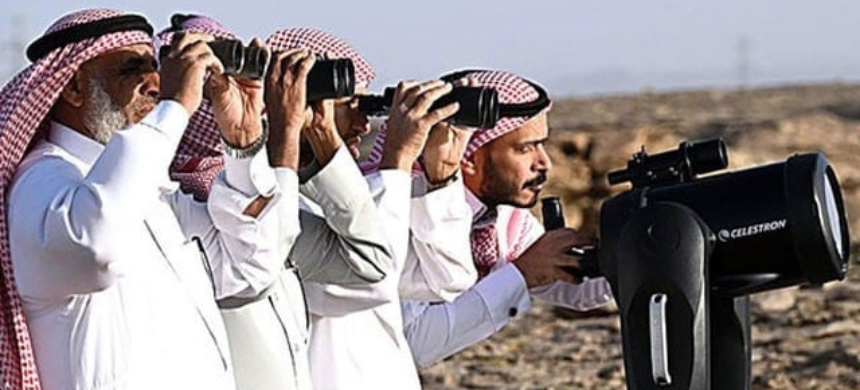ZilHaj Moon Sighted in Saudi Arabia, Indonesia, UAE, Oman, and Australia; Eid-ul-Adha to Be Observed on June 6
The crescent moon marking the beginning of the Islamic month of ZilHaj has been sighted in Saudi Arabia, Indonesia, Australia, the United Arab Emirates, and Oman, confirming that Eid-ul-Adha will be observed on Friday, June 6, in these countries, according to local media reports.
Saudi authorities officially announced that ZilHaj will commence on Wednesday, May 28. Consequently, Waquf-e-Arafa will be observed on Thursday, June 5, followed by Eid-ul-Adha on Friday, June 6. The announcement followed verification from moon-sighting committees across multiple regions of the Kingdom.
Read More: Market Hours Extended Until Eid ul Adha
Similarly, Indonesia, the world’s most populous Muslim-majority country, confirmed the moon sighting, aligning its Eid-ul-Adha celebration with Saudi Arabia on June 6.
Oman also reported the sighting of the ZilHaj crescent moon, confirming Eid-ul-Adha on June 6, according to local sources.
In Australia, the Fatwa Council declared that ZilHaj will begin on May 28. The moon was also sighted in the UAE, where the first day of ZilHaj will be observed on the same date, with Eid-ul-Adha celebrations planned for June 6, as reported by Arab media outlets.
Meanwhile, moon-sighting committees in Malaysia and Brunei did not observe the crescent moon on Tuesday evening. Therefore, both countries will complete 30 days of Ziquad, and Eid-ul-Adha will be celebrated on Saturday, June 7, according to local media.
Pakistan to Observe Eid-ul-Adha on June 7
In Pakistan, the Central Ruet-e-Hilal Committee announced that the ZilHaj moon was not sighted within the country, confirming that Eid-ul-Adha 2025 will be observed on June 7.
The committee convened in Islamabad under the chairmanship of Maulana Abdul Khabir Azad. The meeting included members of central and zonal Ruet-e-Hilal committees, officials from Suparco, the Meteorological Department, and other relevant institutions.
Eid-ul-Adha, also known as the Festival of Sacrifice, commemorates the willingness of Prophet Ibrahim (AS) to sacrifice his son in obedience to God’s command. It is one of the most significant events in the Islamic calendar, marked by communal prayers, animal sacrifices, and the distribution of meat to the needy.











